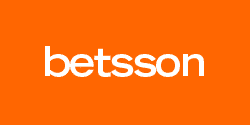Online sports betting is legal and regulated in Armenia. Legal Armenia betting sites hold licenses issued by the Ministry of Finance and operate under the regulatory oversight of the State Revenue Committee.
The Armenia online betting industry operates under tight regulatory controls that mandate cashless transactions, prohibit most gambling advertisements, and restrict licenses to local entities. As a result, only a handful of Armenian sports betting sites have licenses to offer their services to residents.
However, Armenian online sports betting laws do not prohibit residents from using unlicensed operators headquartered in other nations. Some of the world’s most well-known online betting brands accept Armenian customers and provide a wealth of wagering options for locals.
Armenia Betting Sites

The Armenian Ministry of Finance has issued licenses to four operators for various forms of online gambling, and only three offer sports betting. Fortunately, fans suffer no shortage of options because local laws do not restrict access to online sportsbooks licensed elsewhere.
Local operators offer the advantage of Armenian-language interfaces, but international betting sites hold the edge in almost all other aspects because they operate in the highly-competitive global marketplace. As counterintuitive as it seems, online bookmakers headquartered in other European nations beat Armenian betting sites in terms of sports covered, promotions, betting lines, and software.
Below are OnlineBettingSites.com’s highest-rated betting sites that accept Armenians.
22Bet Armenia
- Read more: 22Bet Review
Armenian sports betting fans should consider 22Bet as their first online bookmaker for a multitude of reasons. Most notably, 22Bet Armenia boasts a massive wagering catalog that covers dozens of leagues worldwide, spanning everything from football and horse racing betting to esports.
In addition, 22Bet features an active in-play betting schedule spanning a similarly large range of sports. For example, a visit to the 22Bet Armenia website while writing this paragraph revealed 143 live betting events in progress.
The 22Bet Armenia app and website support many deposit methods, including cryptocurrencies, credit cards, debit cards, and e-wallets such as Skrill.
Bet365 Armenia
- Read more: Bet365 Review
Coming in a close second behind 22Bet is Bet365, one of the world’s largest bookmakers and the only privately owned operator of any prominence. Bet365 outranks all other Armenia betting sites in multiple categories, including customer support, payout speed, odds, and promotions.
Bet365 Armenia betting promotions tend to revolve around the season’s most popular sports throughout the year. Some of the most common types of offers at Bet365.com include enhanced accumulators, early payouts if your team gets ahead by X points, and lost-bet refunds.
Bettors should be aware that Bet365 does not natively support Armenian dram deposits. However, Bet365 provides automatic currency exchanges into each customer’s preferred alternative. So, if someone makes an AMD deposit and selects EUR when asked, Bet365 will convert the deposit into euros (and then back again when the customer withdraws).
Complete list of Bet365 Armenia deposit methods:
- Debit card (Visa, Mastercard, Maestro): $10 to USD 30,000
- Credit card (Visa, Mastercard) $10 to USD 30,000
- Paysafecard: $10 to $1,000 USD
- Wire transfer: $50 to USD 200,000 (2-10 banking days)
- Skrill: €5 to €35,000 EUR
- Neteller: €15 to €37,500 EUR
Neither 22Bet nor Bet365 holds Armenia online betting licenses, but that’s not an issue for locals because the law does not prohibit using foreign operators. Both offer a wider array of wagering markets and better promotions than licensed Armenian betting sites. Additionally, 22Bet and Bet365 offer pari-mutuel horse racing wagering, which is unavailable at licensed operators.
However, bettors can visit the Ministry of Finance website to view a complete list of licensed betting sites in Armenia. To date, the Ministry has issued licenses to the following operators:
- Digitain LLC (totogaming.am): Sports betting, casino games, belote, TV games, virtual racing (but no horse racing wagering)
- Kabarko LLC (adjarabet.am): Sports betting, casino games, poker, belote, and exchange betting powered by Betfair
- Goodsoft LLC (goodwin.am): Casino games, belote, and TV games
- Soft Construct CJSC (vbet.am): Sports betting, casino games, and belote
One other advantage some licensed Armenian sports betting sites offer over their foreign competitors is integration with brick-and-mortar betting shops. For example, Adjarabet and VBET operate betting shops in some cities where customers can place wagers and receive payouts in person.
Armenia Sports Betting Laws
Armenia legalized online sports betting in 2004 via the Law on Gambling, Internet Gambling, and Casinos (full text here).
Under the law, Armenian betting sites must apply for licenses from the Ministry of Finance before offering their services to residents. In addition, the law tasked the State Revenue Committee with regulatory oversight powers to ensure licensees comply with Armenian laws.
Although the law created a pathway for private operators to offer legal online sports betting in Armenia, its strict licensing requirements have artificially limited competition. Specifically, the law only permits entities that meet one of the following requirements to apply for Armenia online betting licenses:
- Founded by Armenian citizens
- Legally registered in the Republic of Armenia
Any entity with online gambling servers in Armenia must apply for a license to offer sports betting and, if approved, pay an annual licensing fee of AMD 600 million.
However, Armenian law does not preclude fans from placing wagers with foreign operators, even if they aren’t licensed in Armenia. Additionally, Armenia does not practice internet censorship or payment blocking to prevent access to foreign betting sites.
As a result, the world’s most well-known operators have declined to apply for licenses. Even so, a majority of prominent international sports betting brands accept Armenian customers despite not holding the appropriate license.
Licensed and unlicensed betting sites in Armenia face similarly strict advertising restrictions due to laws prohibiting most gambling ads. In recent years, the Armenian government has become increasingly concerned by how much money residents are wagering each year and increases in problem gambling among younger populations.
For instance, in 2022, the government noted that the total number of bets placed each year had increased six-fold since 2020. Those concerns resulted in the government prohibiting gambling ads everywhere except at the following locations:
- Four-star and higher hotels
- Border checkpoints
- Operators’ websites
- The fronts of licensed betting shops
The government has also passed legislation to increase gambling tax rates, prohibit cash transactions related to online betting, and outlaw cash transactions related to gambling.
Armenia Online Horse Racing Betting
Armenian law does not address the legality of horse racing betting other than authorizing totalizator wagering. However, none of Armenia’s licensed betting sites offers horse wagering.
As a result, horse racing fans must visit foreign bookmakers to bet on live races via fixed-odds markets and tote pools. Major international betting sites like Bet365 and 22Bet offer fixed-odds wagering and access to pari-mutuel pools at race tracks around the world, making them the go-to betting sites for horse racing fans.
Armenia Online Sports Betting FAQ

Mike Murphy is the founder of OnlineBettingSites.com and has over 10 years of experience in the legal online betting industry. A regular attendee of industry trade shows and conferences, Mike is a strong proponent of regulated markets and responsible gambling policies.


